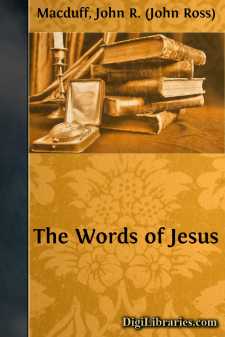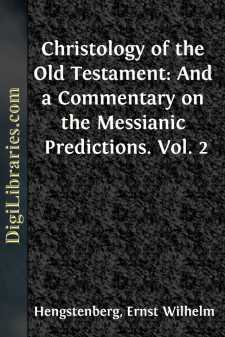Categories
- Antiques & Collectibles 13
- Architecture 36
- Art 48
- Bibles 22
- Biography & Autobiography 813
- Body, Mind & Spirit 142
- Business & Economics 28
- Children's Books 17
- Children's Fiction 14
- Computers 4
- Cooking 94
- Crafts & Hobbies 4
- Drama 346
- Education 46
- Family & Relationships 57
- Fiction 11829
- Games 19
- Gardening 17
- Health & Fitness 34
- History 1377
- House & Home 1
- Humor 147
- Juvenile Fiction 1873
- Juvenile Nonfiction 202
- Language Arts & Disciplines 88
- Law 16
- Literary Collections 686
- Literary Criticism 179
- Mathematics 13
- Medical 41
- Music 40
- Nature 179
- Non-Classifiable 1768
- Performing Arts 7
- Periodicals 1453
- Philosophy 64
- Photography 2
- Poetry 896
- Political Science 203
- Psychology 42
- Reference 154
- Religion 513
- Science 126
- Self-Help 84
- Social Science 81
- Sports & Recreation 34
- Study Aids 3
- Technology & Engineering 59
- Transportation 23
- Travel 463
- True Crime 29
Our website is made possible by displaying online advertisements to our visitors.
Please consider supporting us by disabling your ad blocker.
St. Paul's Epistle to the Romans, Vol. II A Practical Exposition
by: Charles Gore
Description:
Excerpt
St. Paul has concluded his great exposition of the meaning of 'the gospel': that in it is the disclosure of a divine righteousness into which all mankind—Jews and Gentiles on the same level of need and sin—are to be freely admitted by simply believing in Jesus. The believer in Jesus first welcomes the absolute and unmerited forgiveness of his sins, which his redeemer has won for him, and thus acquitted passes into the spiritual strength and joy and fellowship of the new life, the life of the redeemed humanity, lived in Jesus Christ, the second Adam or head of our race. The contemplation of the present moral freedom, and the glorious future prospect, of this catholic body—the elect of God in Jesus Christ—has in the eighth chapter filled the apostle's language with the glow of an enthusiasm almost unparalleled in all the compass of his epistles. And he is intending to pass on to interpret to the representatives of this church of Christ at Rome some of the moral obligations which follow most clearly from the consideration of what their faith really means. This ethical division of the epistle begins with chapter xii. The interval (ix-xi) is occupied with a discussion which is an episode, in the sense that the epistle might be read without it and no feeling of a broken unity would force itself upon us. None the less the discussion not only confronts and silences an obvious objection to St. Paul's teaching, but also brings out ideas about the meaning of the divine election, and the responsibility involved in it, which are vital and necessary for the true understanding of the 'free grace of God.' For these chapters serve really to safeguard the all-important sense of our human responsibility under the rich and unmerited conditions of divine privilege in which we find ourselves.
St. Paul's argument so far has involved an obvious conclusion. God's elect are no longer the Jews in particular. On the contrary, the Jews in bulk have lost their position and become apostates in rejecting the Christ. This result in the first place cuts St. Paul to the heart, for his religious patriotism was peculiarly intense. But in the second place it furnishes an objection in the mouth of the Jew against St. Paul's whole message. For if God had really rejected His chosen people, He had broken His word in so doing. God had pledged Himself to Israel: the Old Testament scriptures were full of passages which might be quoted to this effect. Thus—
'My mercy will I not utterly take from David
'Nor suffer my faithfulness to fail.
'My covenant will I not break,
'Nor alter the thing that is gone out of my lips.
'Once have I sworn by my holiness;
'I will not lie unto David;
'His seed shall endure for ever,
'And his throne as the sun before me.
'It shall be established for ever as the moon,
'And as the faithful witness in the sky[].'
But according to St. Paul's teaching, had not God 'broken His covenant'? What had become of the 'faithful witness'? To this objection, then, St. Paul sets himself to reply. The chapters we are now to consider may be best represented as an animated defence of his teaching directed toward a Jew who pleads this objection. St. Paul, no doubt, had heard too much of it since he began to preach the gospel, and had felt it too deeply in his own mind in the earlier days, when the word of Jesus was as a goad against which he was kicking, for it to be possible for him to pass it by. And his defence—his 'theodicy' or justification of God—is in brief this: God never committed Himself or tied Himself to Israel physically understood. He always kept hanging over their heads declarations of His own freedom in choosing His instruments, and warnings of possible rejection, such as ought to have prevented their resting satisfied with merely having 'Abraham to their father' (ix). And if the question be asked: Why has Israel been rejected? The answer is: That so far as actual Israel has fallen out of the elect body, it is because they refused to exhibit the correspondence of faith (x); but also Israel, as such, has not been rejected; for, as of old, so now there is a faithful remnant. Nor again is the partial alienation of Israel which has occurred final. God is simply waiting for their recovery of faith, to restore them to their ancient and inalienable position of election. Meanwhile He uses their temporary alienation as the opportunity of the Gentiles, who in their turn can only retain their newly won position by maintaining the correspondence of faith with the purposes of God, and who also wait for their fulfilment and the perfecting of their joy upon the recovery of Israel as a body. Thus through all stages of election and rejection—by both methods of mercy and of judgement—God, in His inscrutable wisdom, works steadily for the opportunity of showing His mercy upon all men....














